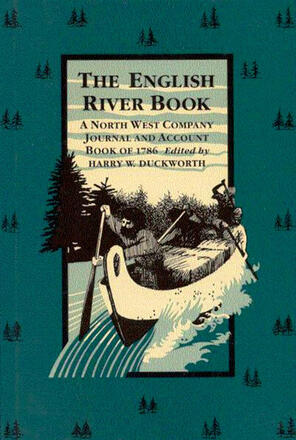
The English River Book
A North West Company Journal and Account Book of 1786
Description
One of the few surviving documents from this important period in Canadian history is The English River In 1786 the North West Company traded furs in Athabaska territory as a branch of its English River district. English River was the fur trader's name for the Churchill River. The journal, which was probably kept by Cuthbert Grant the elder (later a North West Company partner), provides a day-to-day record of trade in the spring of April 1786 at Fort Athabaska, under the direction of Peter Pond. The vividly written text describes Pond's peremptory manner with the Indians and the traders'return to civilization in May. Colourful anecdotes describe events such as the time the Athabaska River, blocked by ice, flooded the fort, leaving its inhabitants scrambling for the rafters. The journal lists the names of clerks and voyageurs and contains some of the earliest native names on record. In addition to listing the names of those who worked and traded in the area, The English River Book catalogues duties, wages, stations, and many other details concerning the approximately one hundred voyageurs in the English River district during 1785 and 1786. Included are many familiar figures: such as Joseph Cartier, an interpreter whose fur trading career lasted almost sixty years, and Joseph Landry and Charles Doucette, the Acadian voyageurs who a few years later guided Alexander Mackenzie to the Arctic and the Pacific oceans, The English River Book also contains inventories of trading goods, some familiar, some mysterious, and features a short Cree trading vocabulary. In The English River Book romantic lore of the fur trade and the adventurous lives of the traders are recounted on the spot and in the heat of events. This text is unique in that, rather than providing the reminiscence of a retired trader, it presents an active working journal.
Reviews
"makes an important contribution to our knowledge of history. Professor Duckworth's work is painstaking, detailed, scholarly - a labour of love, entirely commendable." C. Stuart Houston, Head of the Department of Medical Imaging, University of Saskatchewan, and editor of The Arctic Ordeal and To the Arctic by Canoe.